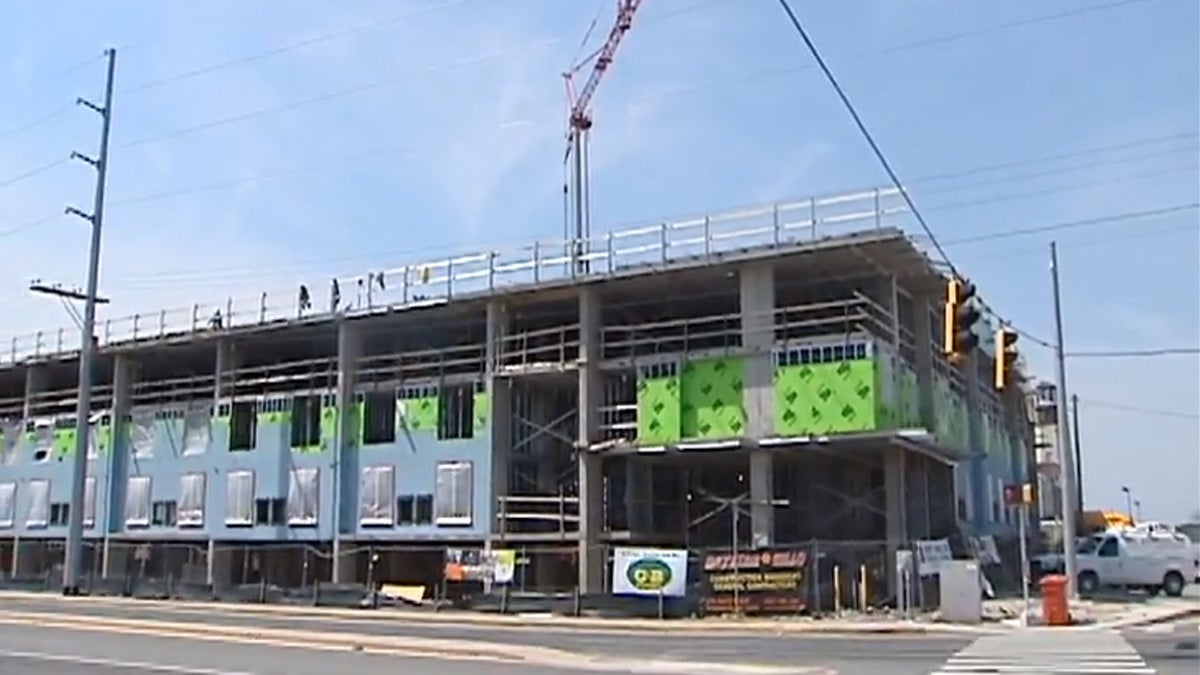Delaware Supreme Court rules in favor of Ruddertowne development project

The Delaware Supreme Court has ruled that the Court of Chancery was in the right to dismiss a complaint in the long-standing dispute over the development of Ruddertowne, a retail, restaurant and hotel complex in Dewey Beach.
In an opinion written by Justice Carolyn Berger, the Supreme Court found that the Court of Chancery “lacked jurisdiction” to hear a claim brought fourth by Dewey Beach property owners against the Dewey Beach Enterprises, because the property owners did not file a formal complaint within the 60-day window following public notice.
According to the Supreme Court’s opinion, the town of Dewey Beach gave notice that it had adopted a resolution giving final approval for the project on March 1, 2011 and signed a mutual agreement and release document (MAR) to settle all lawsuits.
The property owners did not file a complaint against the MAR until August of that year and argued that the 60-day window didn’t apply in this case because they were challenging the town’s decision to approve the plan, rather than the zoning plans.
“In sum, whether the property owners are challenging the MAR, the zoning changes effectuated pursuant to the MAR, or the approval of the project’s final plans and building permit application, the Court of Chancery lacked jurisdiction to hear those claims because, under 8126, they were extinguished 60 days after the town gave public notice of those actions,” stated the Supreme Court’s opinion.
The decision comes after more than six years of litigation between the developers, the town and residents of Dewey Beach. The fight began in 2007 when the developers proposed the development plan which included a 68 foot structure. Using special standards, the developers could bypass the town’s zoning rules including the town’s height limit of 35 feet for structures, which ignited litigation between the town and the developers. The town and the developers settled the dispute and decided on a building height of 46 feet.
Shortly after that deal was made, four Dewey Beach property owners then filed a lawsuit challenging the authority of the town to enter into that kind of a contact because it bypassed the procedures set forth in the zoning code.
“We think it’s a bad decision for citizens of Delaware counties and municipalities that are trying to navigate a zoning code and zoning code issues. We think it’s bad decision for those governing bodies, for elected officials, for volunteer governing bodies that are also trying to navigate the same zoning decisions. It creates more confusion,” said Attorney Michael McDermott, who represented the residents sued the town of Dewey Beach.
Despite litigation that’s been plaguing the Ruddertowne development since its beginning in 2007; the developers were able to move forward with construction. DBE plans to open the first phase of construction, Lighthouse Cove this summer.
“The Supreme Court has undercut the ability of citizens in Delaware to rely on the plain language of the law for procedural protections. Now developers statewide can evade well-established land use law on which the public relies to challenge major developments in their communities,” said Dewey Beach property owner JoanClaybrook.
Ruddertowne is slightly behind schedule for its proposed spring 2013 opening. Developers hope to open in late July.
WHYY is your source for fact-based, in-depth journalism and information. As a nonprofit organization, we rely on financial support from readers like you. Please give today.




